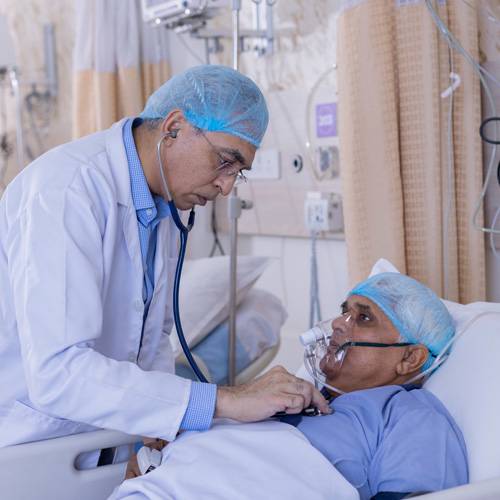The Department of Emergency Medicine at Citizens Specialty Hospital caters to patients with emergency medical conditions. The emergency medicine team comprises trained doctors and paramedical staff experienced in advanced trauma life support, advanced cardiac life support, and basic life support.
Advanced patient care facilities are available for patients that reach the hospital in critical condition. As soon as the patient reaches the hospital, the expert doctors diagnose the situation and deliver treatment in the emergency room. If further diagnosis and evaluation are required, the patient is admitted to the hospital. The primary goal of the emergency department is to save lives and stabilize the condition of the patient. Our emergency department has an interdisciplinary approach to patient care, working with other specialties to provide optimal care per the patient’s needs.
The Emergency OT (ER OT) is equipped with a surgical intensive care unit (SICU), neonatal intensive care unit (NICU), high-dependency unit (HDU), pediatric intensive care unit (PICU), medical intensive care unit (MICU), and heart patient cardio-thoracic intensive care unit (CTICU). In addition, the hospital also has the facilities of a round-the-clock pharmacy, blood bank, and dialysis unit. The general emergency conditions managed at the hospital are trauma due to an accident or fall, cardiovascular and neurological emergencies, poisoning, and other acute medical and surgical emergencies.
Doctors & Trained Staff
Term Of Specialists
Patients From More Than 5 Countries
OT Departments
Our Blogs will keep you updated with the latest news,
campaigns, health and wellness updates you should know.




